Find your spoon
The radical idea of choosing purpose and joy
About 10 years ago, a few friends from work and I attended a spoon carving workshop taught by Windy Chien. Wooden spoons were really having a moment with artists like Windy and Ariele Alasko elevating the humble kitchen tool into a beautiful form.
Windy was a great instructor. She had recently left her tech career to pursue life as a professional artist, and as she guided us through carving spoons from cherry and walnut in a creative space in Emeryville, she spoke about how she had found real passion and purpose in spoon carving and knot making. She had decided that art and craft were worthy of her time. She prioritized joy.
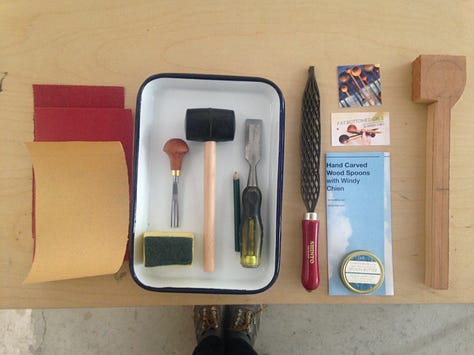
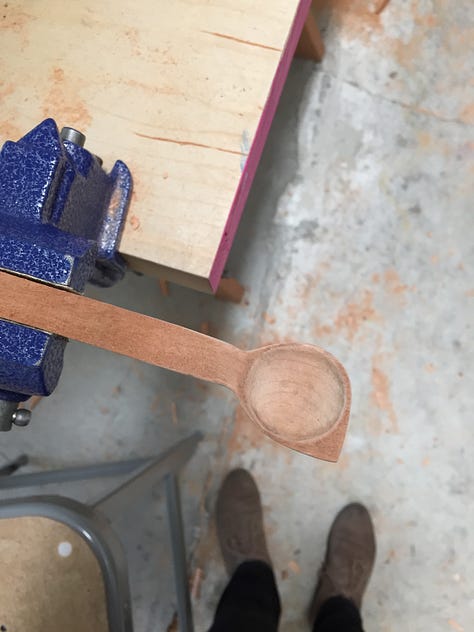
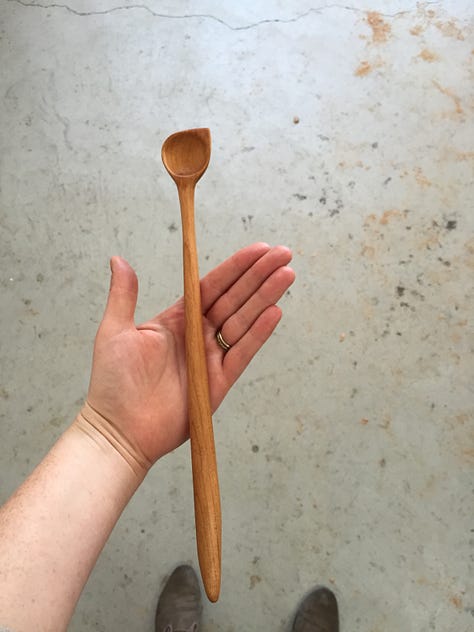
We left the workshop, spoons in hand, feeling fired up. Not only had we turned a paddle-shaped block of wood into a sculptural, functional spoon—so satisfying!—we had a new mantra, inspired by Windy’s story: “find your spoon.” It was shorthand for the seemingly radical idea of finding your passion and changing your life to pursue it.
Right phrase, wrong time
Back then, “finding your spoon” felt like a far-off and unattainable dream. It was a bit of a rallying cry, sure, but mostly a joke we pulled out when work got stressful or we found ourselves doing something decidedly not joyful.
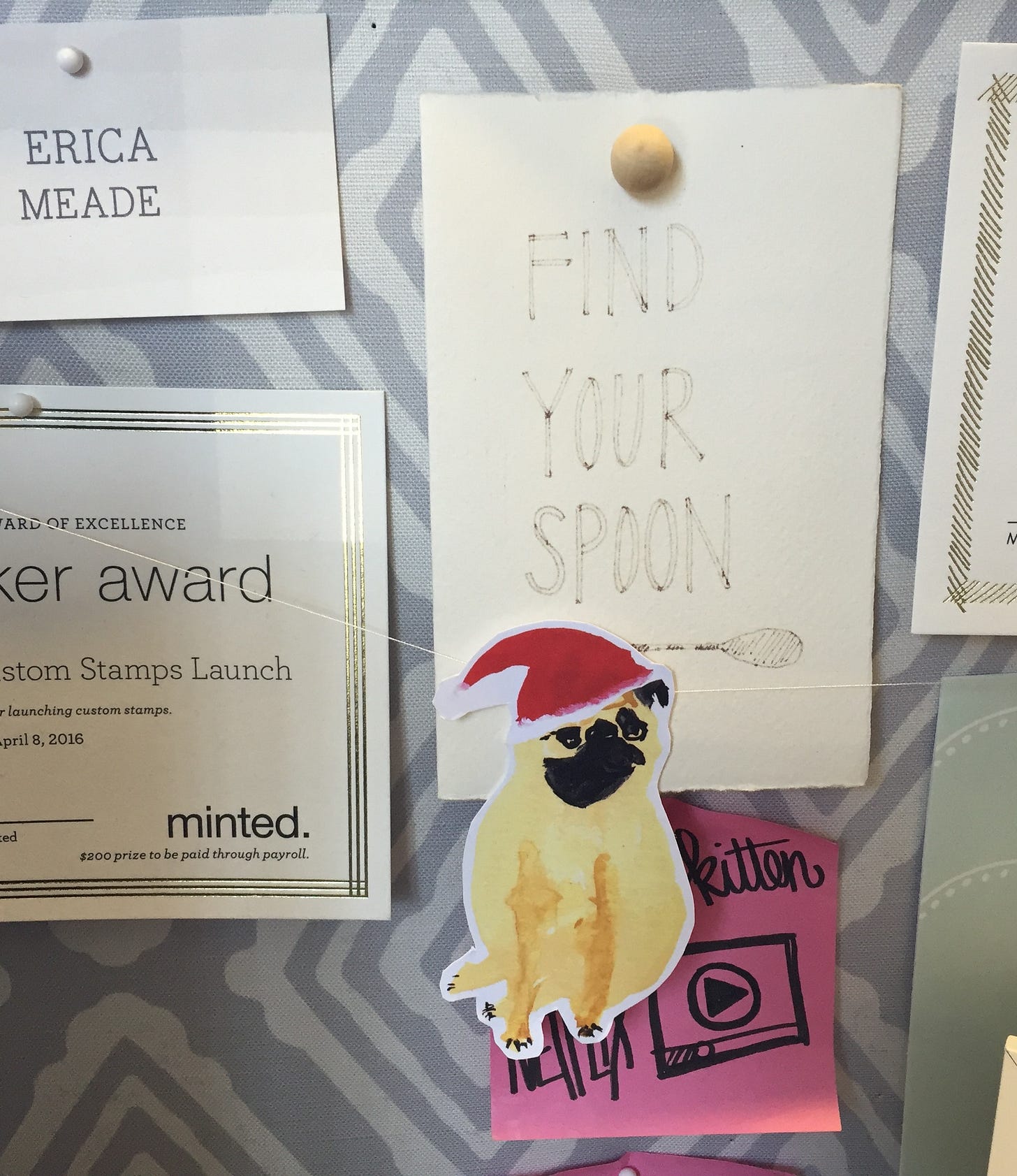
And while the workshop taught us how to carve spoons, it also gave me an introduction to the questions: What do I want more of in my life? What do I want to make space for?
I wasn’t ready to examine or answer those questions then, but looking back, it feels prophetic. It now sounds a lot like the spirit of Practice: giving a name to creative joy, and daring to believe it’s worth pursuing.
My search for a spoon
I loved arts and crafts as a kid, which led me to study art in college. But after graduating, I pursued a career in tech and struggled to find time and space for creative making. It never quite fit into the rhythm of my adult life. I'd design custom t-shirts for friend trips or attend one-off workshops—like Windy’s spoonmaking class—but those moments were fleeting.
I tried to cultivate a more consistent creative habit. For a while, my husband and I hosted a weekly “craft night” with neighbors. It was mostly about eating pizza, but some crafting definitely happened. But we moved, and the habit faded. I also took a few painting classes at California College of the Arts. They were mostly open studio time with occasional demos and critiques and I treated the weekly classes as a forcing function: something to get me into the studio after a long work day and focus on making.
I enjoy painting, but it can be a bit daunting because I feel like I need a provocative concept or an artist statement to justify the work, and like each new canvas is supposed to be filled with meaning. I like making Art (with a capital A), but for me, it carries higher stakes. It can become meditative and immersive, but it feels different from something like carving a spoon, where the materials and process naturally lead to a satisfying, tangible result. Where you create joy, but with less pressure.
So while I’ve tried to make space for creativity over the years in a few different ways, nothing really stuck—until I made my first dollhouse in 2023. It was challenging in the best way, and deeply satisfying. Like painting, it started with a blank canvas (or in this case, an empty room box or dollhouse kit), but the stakes felt lower for some reason. I could explore materials, try new techniques, and create something tactile and joyful.
I hadn’t thought about the phrase “find your spoon” in years, but recently realized: it took me a decade, but I found mine. It’s mini making. And I really, truly love it.
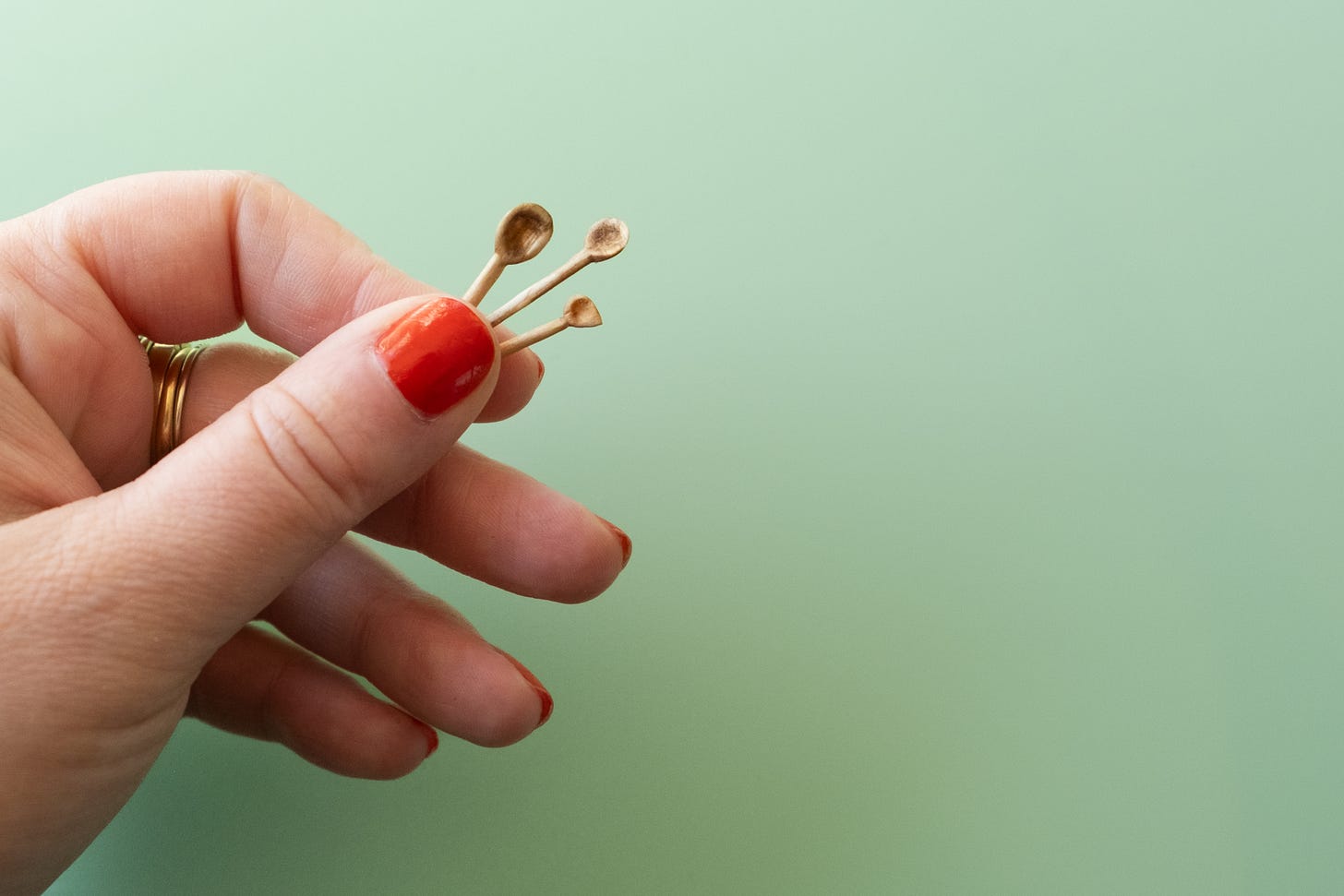
Practice will help people find their spoon
Even with a lifelong connection to making, it still took me years to find a creative hobby that truly resonated and felt natural in my day-to-day life. So when I think about people who don’t have that same history or instinct to create, I imagine how hard it must be to find their version of a spoon without a little guidance.
That’s one of Practice’s core goals: to help people not only find their spoon, but keep it close. With habit-building, reflection, and just enough structure, we aim to support a creative practice that feels meaningful, sustainable, and driven by joy.
We’re not saying everyone should quit their job to carve spoons full time. But we are trying to make it feel less radical to prioritize joy, carve out space for creativity, and treat making as something that’s worthy of your time and beneficial to your health and wellbeing.
And maybe, one day, you’ll look up from your cutting mat—or knitting project, or Gunpla model—and say, “Hey. I think I found my spoon.”

